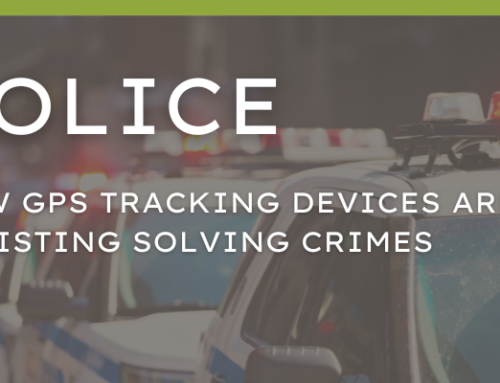Are you in need of a reliable GPS tracker but unsure how they actually work? Look no further! In this comprehensive guide, we will demystify GPS trackers and help you understand why they are a crucial tool for both personal and business use. Whether you want to keep tabs on your loved ones, track valuable assets, or monitor your fleet, GPS trackers can provide real-time location data and peace of mind.
So, how do GPS trackers work? By utilizing a network of satellites, these tiny devices can accurately determine their own location and transmit this information to a receiving device. From there, you can access the data through a mobile app or web portal, allowing you to track the device in real-time.
Why should you consider investing in a GPS tracker? The applications are endless. For parents, it offers an extra layer of security knowing where your child is at all times. Business owners can improve fleet management and enhance efficiency by monitoring the location and performance of their vehicles. And for outdoor enthusiasts, these trackers can be a lifesaver in emergency situations.
Ready to dive deeper into the world of GPS trackers? Let’s get started!
How GPS trackers work
GPS, or Global Positioning System, is a satellite-based navigation system that allows for precise location tracking anywhere on Earth. GPS trackers utilize this technology to determine their own location and transmit the data to a receiving device in real-time.
GPS trackers work by connecting with a network of satellites that orbit the Earth. These satellites constantly send out signals that contain information about their location and the exact time the signal was sent. The GPS tracker receives these signals and uses the time stamps to calculate the distance between itself and the satellites.
By receiving signals from multiple satellites, the GPS tracker is able to triangulate its own position using a process called trilateration. This involves measuring the time it takes for the signals to reach the tracker from each satellite and using the speed of light to calculate the distance. With this information, the GPS tracker can determine its latitude, longitude, and altitude.
Once the GPS tracker has determined its location, it can transmit this data to a receiving device, such as a smartphone or computer, through a wireless connection. This allows you to track the device in real-time and access the location data through a mobile app or web portal.
In summary, they work by utilizing a network of satellites to determine their own location and transmit this information to a receiving device, providing real-time tracking capabilities.
Types of GPS trackers
GPS trackers come in various shapes and sizes, each designed for specific use cases. Here are some common types of GPS trackers:
1. Personal GPS trackers: These are small, portable devices that can be easily carried or attached to personal belongings. They are commonly used to track children, pets, elderly family members, or valuable items. Personal GPS trackers often come with additional features like panic buttons or geofencing capabilities.
2. Vehicle GPS trackers: These trackers are specifically designed for tracking vehicles, such as cars, trucks, or motorcycles. They can be installed discreetly in the vehicle and provide real-time location data, as well as information about vehicle speed, mileage, and maintenance needs. Vehicle GPS trackers are commonly used for fleet management, theft recovery, or monitoring the driving behavior of teenage drivers.
3. Asset GPS trackers: Asset trackers are used to track valuable assets, such as equipment, containers, or high-value shipments. These trackers are typically rugged and weatherproof, allowing them to withstand harsh conditions. Asset GPS trackers can provide real-time location data and alert you if the asset is moved or tampered with.
4. Fitness GPS trackers: These trackers are specifically designed for tracking fitness activities, such as running, cycling, or swimming. They can monitor metrics like distance, speed, heart rate, and calories burned. Fitness GPS trackers are popular among athletes and fitness enthusiasts who want to track their performance and set personal goals.
5. Marine GPS trackers: Marine trackers are designed for use on boats, yachts, or other watercraft. They are waterproof and can provide accurate location data even in marine environments. Marine GPS trackers are essential for navigation, safety, and tracking the location of vessels.
These are just a few examples of the different types of GPS trackers available. The right tracker for you will depend on your specific needs and use case.
Benefits of using GPS trackers
The applications of GPS trackers are endless, and they offer numerous benefits for both personal and business use. Here are some key advantages of using GPS trackers:
1. Enhanced safety and security: GPS trackers provide an extra layer of security by allowing you to track the location of your loved ones, valuable assets, or vehicles in real-time. In case of an emergency or theft, you can quickly locate the tracker and take appropriate action.
2. Improved fleet management: For businesses that rely on a fleet of vehicles, GPS trackers can significantly improve efficiency and productivity. By tracking the location and performance of vehicles, businesses can optimize routes, monitor driver behavior, and reduce fuel consumption. This leads to cost savings and better customer service.
3. Peace of mind for parents: GPS trackers are a valuable tool for parents who want to ensure the safety of their children. By tracking their location, parents can have peace of mind knowing where their child is at all times. GPS trackers with geofencing capabilities can also send alerts if the child leaves a designated safe zone.
4. Theft recovery: GPS trackers can be a lifesaver in case of theft. By tracking the location of stolen items or vehicles, you can provide the information to law enforcement, increasing the chances of recovery. Many insurance companies offer discounts on premiums for vehicles equipped with GPS trackers.
5. Outdoor safety: For outdoor enthusiasts, GPS trackers can be a crucial safety device. Whether you are hiking, camping, or engaging in other outdoor activities, having a GPS tracker can help you navigate unfamiliar terrain, track your route, and send distress signals in case of an emergency.
These are just a few of the benefits of using GPS trackers. The specific advantages will vary depending on your needs and use case. However, one thing is clear – GPS trackers can provide peace of mind, enhance safety, and improve efficiency.
Common uses of GPS trackers
GPS trackers have a wide range of applications across various industries and personal use cases. Here are some common uses of GPS trackers:
1. Vehicle tracking: GPS trackers are commonly used in fleet management to track the location, speed, and performance of vehicles. This allows businesses to optimize routes, monitor driver behavior, and improve overall efficiency.
2. Personal safety: GPS trackers are often used to enhance personal safety, especially for children, elderly family members, or individuals with special needs. By tracking their location, caregivers can ensure their well-being and respond quickly in case of emergencies.
3. Asset tracking: GPS trackers are invaluable for tracking valuable assets, such as construction equipment, containers, or high-value shipments. They can provide real-time location data, as well as alert you if the asset is moved or tampered with.
4. Outdoor activities: GPS trackers are popular among outdoor enthusiasts who engage in activities like hiking, camping, or boating. They can help navigate unfamiliar terrains, track routes, and send distress signals in case of emergencies.
5. Sports and fitness: GPS trackers designed for sports and fitness activities can track metrics like distance, speed, heart rate, and calories burned. They are used by athletes and fitness enthusiasts to monitor their performance and set personal goals.
6. Personal belongings: GPS trackers can be attached to personal belongings, such as bags, wallets, or keys, to track their location. This can be useful in case of loss or theft.
These are just a few examples of the common uses of GPS trackers. The possibilities are endless, and the right tracker for you will depend on your specific needs and use case.
Choosing the right GPS tracker for your needs
Now that you understand how GPS trackers work and the benefits they offer, it’s time to choose the right tracker for your needs. Here are some factors to consider when selecting a GPS tracker:
1. Use case: Identify your specific needs and use case. Are you tracking a vehicle, a loved one, or valuable assets? Different trackers are designed for different purposes, so make sure to choose one that meets your requirements.
2. Features and functionalities: Consider the features and functionalities you need. Do you require real-time tracking, geofencing capabilities, or additional sensors like heart rate monitors? Make a list of must-have features and prioritize them when selecting a tracker.
3. Battery life: GPS trackers are powered by batteries, so consider the battery life and how often you will need to recharge or replace the batteries. Longer battery life is important if you require continuous tracking over extended periods.
4. Connectivity: GPS trackers require a wireless connection to transmit location data. Consider the connectivity options available, such as cellular networks or satellite communication, and choose one that provides reliable coverage in your area.
5. Cost: GPS trackers come at different price points, so consider your budget and the ongoing costs associated with the tracker, such as data plans or subscription fees. Balance the features, quality, and cost to find the best value for your money.
6. User experience: Look for trackers that have user-friendly interfaces, intuitive mobile apps or web portals, and good customer support. A positive user experience is essential for seamless tracking and ease of use.
By considering these factors, you can narrow down your options and find the GPS tracker that best suits your needs and budget.
GPS tracker installation and setup
Once you have selected the right GPS tracker, it’s time to install and set it up. The installation process will vary depending on the type of tracker and its intended use. Here are some general steps to follow:
1. Read the user manual: Familiarize yourself with the user manual provided by the manufacturer. It will contain important instructions specific to your GPS tracker model.
2. Choose a suitable location: For vehicle trackers, choose a discreet location in the vehicle where the tracker will not be easily detected or tampered with. Personal trackers can be attached to clothing or accessories, while asset trackers may require mounting or securing.
3. Power on the tracker: Activate the GPS tracker by turning it on or inserting the batteries. Follow the manufacturer’s instructions for powering on the tracker.
4. Set up the tracking platform: Most GPS trackers require a mobile app or web portal to access the tracking data. Download the app or visit the website provided by the manufacturer and create an account.
5. Pair the tracker with the receiving device: Follow the instructions provided by the manufacturer to pair the GPS tracker with your receiving device, such as a smartphone or computer. This will enable you to access the tracking data in real-time.
6. Test the tracker: Once the installation and setup are complete, test the tracker to ensure it is functioning correctly. Check the accuracy of the location data and test any additional features or functionalities.
If you encounter any difficulties during the installation or setup process, refer to the user manual or contact the manufacturer’s customer support for assistance.
GPS tracker features and functionalities
GPS trackers come with a variety of features and functionalities, depending on the model and manufacturer. Here are some common features to look out for:
1. Real-time tracking: This feature allows you to track the location of the GPS tracker in real-time. It provides accurate and up-to-date location data, allowing you to monitor movement and respond quickly in case of emergencies.
2. Geofencing: Geofencing allows you to set virtual boundaries or safe zones for the GPS tracker. You will receive alerts if the tracker enters or exits these predefined areas. Geofencing is particularly useful for tracking children or monitoring the movement of assets.
3. Panic button: Some GPS trackers come with a panic button that can be pressed in case of emergencies. Pressing the panic button will send an alert to designated contacts, notifying them of the distress situation and the location of the tracker.
4. Two-way communication: Certain GPS trackers allow for two-way communication, enabling voice calls or text messages between the tracker and a receiving device. This can be useful for elderly individuals or children who may need to communicate in case of emergencies.
5. Historical data and reports: Many GPS trackers store historical location data, allowing you to view past movements and generate reports. This can be useful for analyzing patterns, tracking mileage, or reviewing performance.
6. Speed and movement alerts: GPS trackers can send alerts if the tracker exceeds a predefined speed limit or if there is unauthorized movement. This is particularly useful for vehicle tracking or monitoring driver behavior.
7. Battery life indicator: Some GPS trackers have a battery life indicator that shows the remaining battery capacity. This allows you to plan for recharging or replacing the batteries in a timely manner.
These are just a few examples of the features and functionalities available in GPS trackers. Consider your specific needs and prioritize the features that are most important to you.
GPS tracker regulations and privacy concerns
While GPS trackers offer numerous benefits, there are also regulations and privacy concerns to be aware of. It’s important to use GPS trackers responsibly and within the bounds of the law. Here are some considerations:
1. Consent: If you are tracking someone else’s location, such as a child or an employee, it’s important to obtain their consent. Make sure to inform them about the purpose of the tracking and how the data will be used.
2. Legal restrictions: Different countries and jurisdictions have different regulations regarding the use of GPS trackers. Familiarize yourself with the laws in your area and ensure compliance to avoid legal issues.
3. Data privacy: GPS trackers collect and transmit personal data, so it’s important to protect this data and ensure its privacy. Choose a reputable manufacturer that has robust security measures in place to safeguard the data.
4. Transparent communication: If you are using GPS trackers in a professional setting, it’s important to have transparent communication with your employees or stakeholders. Clearly communicate the purpose of the tracking and address any concerns they may have.
By being aware of these regulations and privacy concerns, you can use GPS trackers responsibly and ensure the privacy and consent of all parties involved.
Conclusion: Why you need a GPS tracker
In conclusion, GPS trackers are powerful tools that provide real-time location data and peace of mind. Whether you are a parent wanting to keep tabs on your child, a business owner looking to improve fleet management, or an outdoor enthusiast needing a safety device, they also have numerous applications and benefits.
With a network of satellites and advanced technology, GPS trackers accurately determine their own location and transmit this information to a receiving device. By choosing the right tracker for your needs and following the installation and setup process, you can start tracking in no time.
Remember to consider factors like use case, features, battery life, connectivity, cost, and user experience when selecting a GPS tracker. Use GPS trackers responsibly, ensuring consent, complying with regulations, and protecting data privacy.
Whether it’s for personal or business use, GPS trackers offer enhanced safety, improved efficiency, and peace of mind. Invest in a GPS tracker today and experience the benefits of real-time location tracking.





